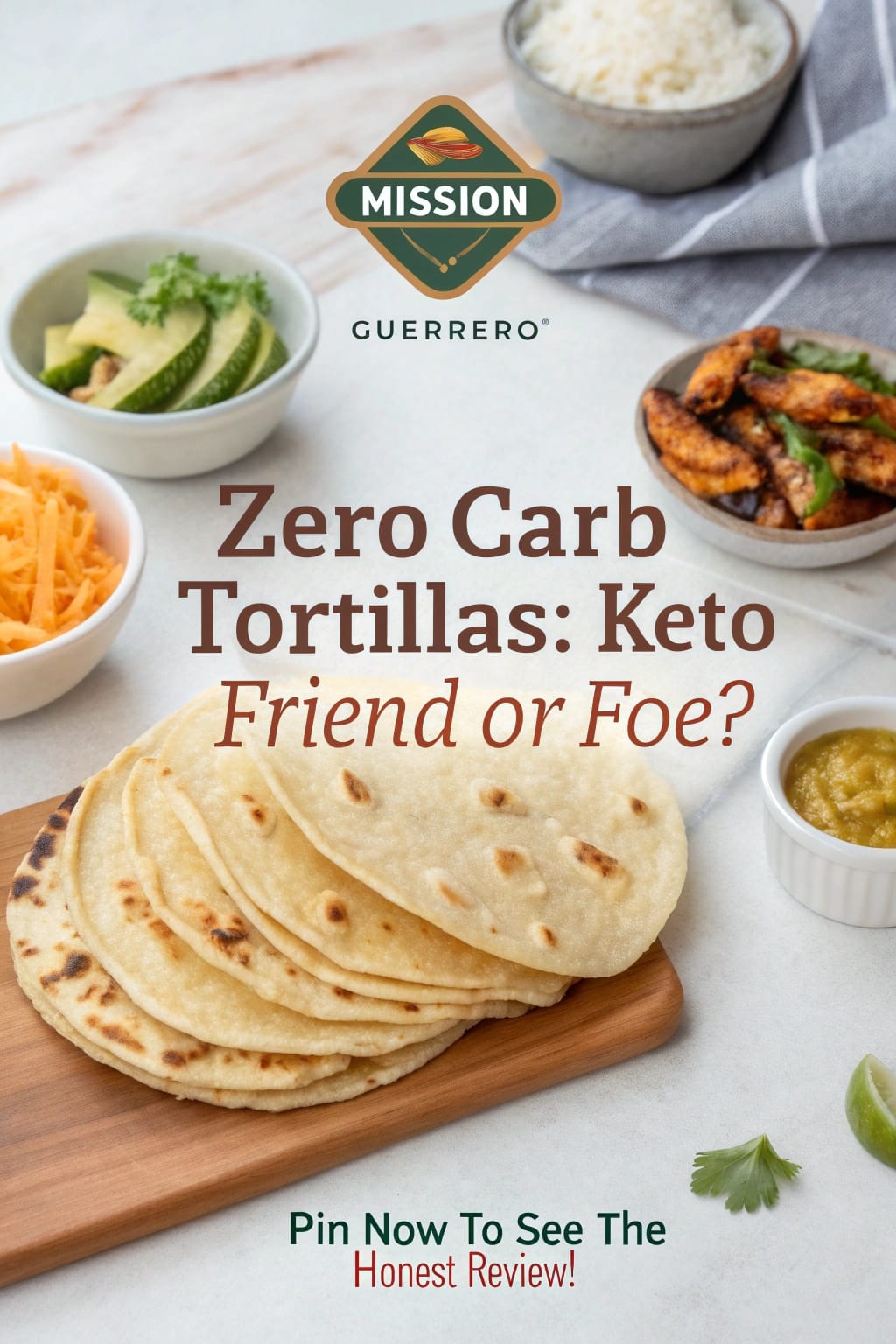Zero Carb Tortillas: Keto Friend or Foe? (Honest Review of Mission, Guerrero & More)
If you’re following a ketogenic diet, you know the struggle is real when it comes to giving up tortillas. Those soft, flexible wraps that cradle your favorite fillings are sorely missed when you’re counting carbs. Enter “zero carb tortillas” – a product category that promises to let you enjoy your favorite Mexican-inspired dishes without derailing your low-carb lifestyle.
But are these too good to be true? As someone deeply immersed in the keto and carnivore eating approaches, I’ve taken a critical look at these popular products to determine if they truly deserve a place in your low-carb pantry.
Important Caveat: Before we dive in, it’s worth noting that these products are generally NOT suitable for a strict Carnivore diet due to their plant-based ingredients. However, they are heavily marketed toward and used by those following ketogenic diets, which is why we’re examining them today.
Table of Contents
What Does “Zero Carb” or “Zero Net Carb” Actually Mean?
First, let’s clarify some terminology. When you see “zero carb” or “zero net carb” on packaging, manufacturers are referring to net carbs, not total carbohydrates. The equation is simple:
Net Carbs = Total Carbs – Fiber – Certain Sugar Alcohols
Most zero carb tortillas achieve their low net carb count through high fiber content. Common fiber sources include:
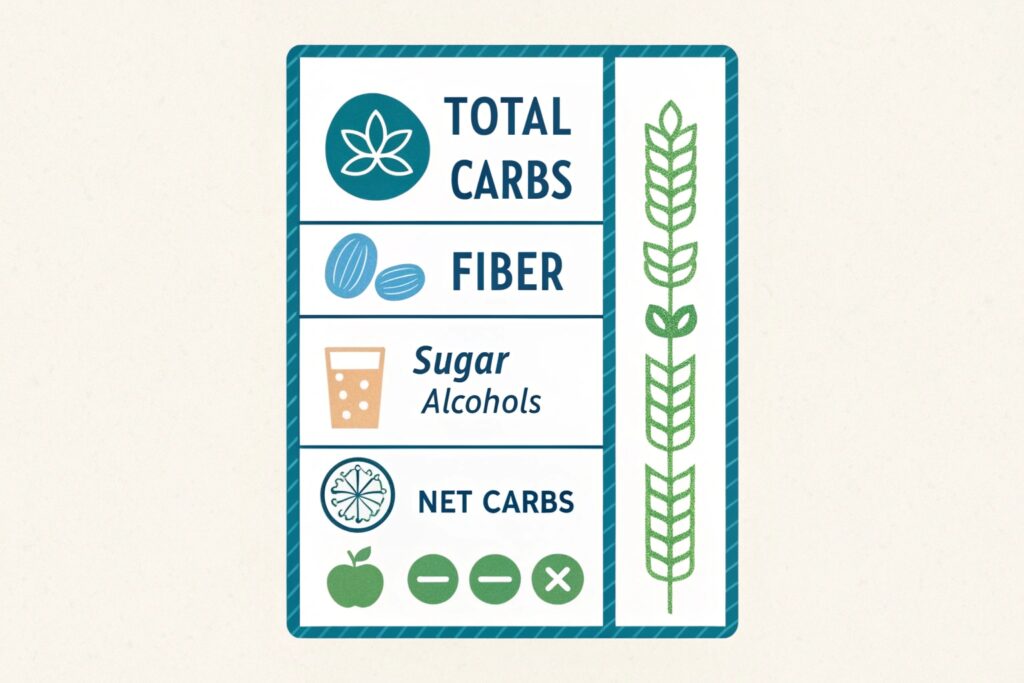
- Cellulose fiber: Often derived from wood pulp
- Oat fiber: From the outer shell of oat grains
- Inulin: A prebiotic fiber from chicory root
- Psyllium husk: A soluble fiber from plantain seeds
For most people, these fibers have minimal impact on blood sugar levels, which is why they’re subtracted from the total carb count. However, it’s important to note that individual responses can vary. Some people may experience blood sugar spikes even from “non-impact” carbs, particularly those with insulin resistance or diabetes.
According to a study published in the Journal of Nutrition, dietary fibers differ in their metabolic effects, with some potentially offering more benefits than just lowering net carb counts.[^1]
The Ingredient Deep Dive: What Are You Really Eating?
When you flip over that package of zero carb tortillas, you’ll likely find a lengthy ingredient list. Let’s break down what you’re actually consuming:
Modified Wheat Starch / Resistant Starch
These processed starches are designed to resist digestion, meaning they pass through your digestive system without being fully broken down into glucose. While they technically qualify as low-impact carbs, they’re highly processed ingredients.
A review in Current Opinion in Clinical Nutrition & Metabolic Care suggests resistant starch may offer some benefits for gut health, but the highly modified versions in processed foods differ from naturally occurring forms.[^2]
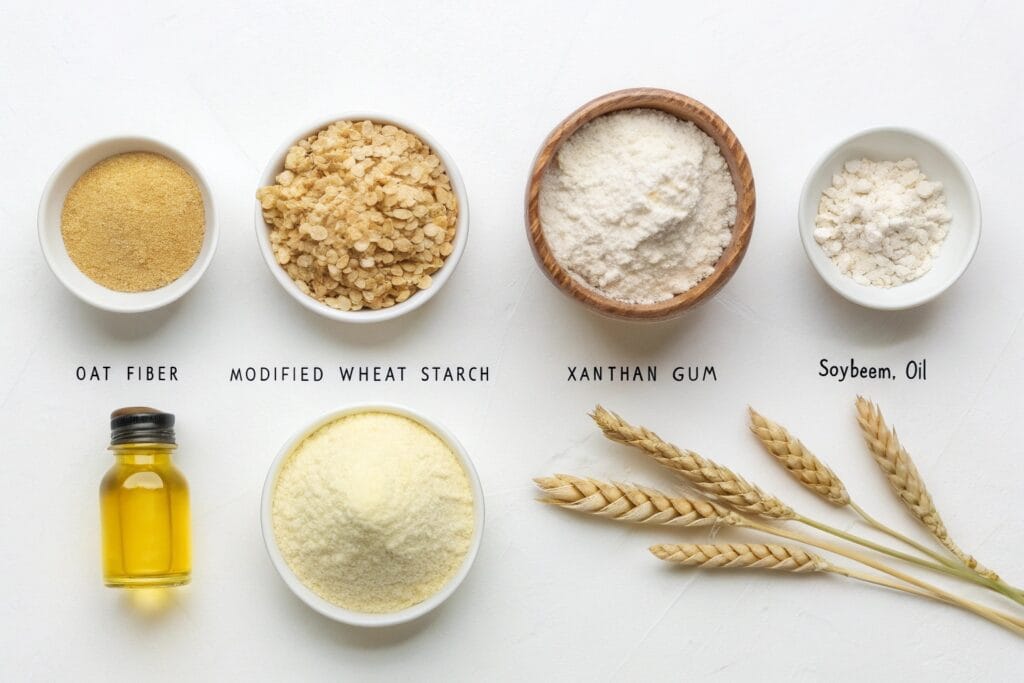
Vegetable Oils (Soybean, Canola)
Many brands include industrial seed oils like soybean or canola oil. These polyunsaturated fats are often avoided by strict keto and carnivore enthusiasts due to their potential inflammatory properties and high omega-6 content.
Research published in BMJ indicates that replacing saturated fats with industrial seed oils may not yield the cardiovascular benefits once thought, raising questions about their inclusion in health-focused products.[^3]
Gums (Xanthan, Guar)
These additives provide elasticity and structure but are essentially indigestible polysaccharides. Some people report digestive discomfort from these thickening agents.
Cellulose / Powdered Wood Pulp
Yes, you read that right – many zero carb tortillas contain wood pulp derivatives. While generally recognized as safe (GRAS) by the FDA, this isn’t exactly a whole food ingredient.
Artificial Sweeteners
Some brands include sucralose or other sweeteners to improve flavor. These may affect gut bacteria and trigger cravings in sensitive individuals, according to emerging research in the International Journal of Obesity.[^4]
Dough Conditioners and Preservatives
Ingredients like monoglycerides, calcium propionate, and sorbic acid extend shelf life and improve texture but are far from natural.
For those following a clean keto approach or sensitive to processed ingredients, these additions raise red flags. While they help achieve the desired low-carb count and familiar tortilla texture, they represent significant compromises on ingredient quality.
Brand Showdown: Reviewing Popular Zero Carb Tortillas
Mission Zero Net Carb Tortillas Review
Key Ingredients: Modified food starch, wheat gluten, wheat protein isolate, soybean oil, vegetable shortening, oat fiber, wheat fiber, cellulose gum, cellulose powder, xanthan gum, sodium acid pyrophosphate, potassium sorbate, calcium propionate, sorbic acid, fumaric acid
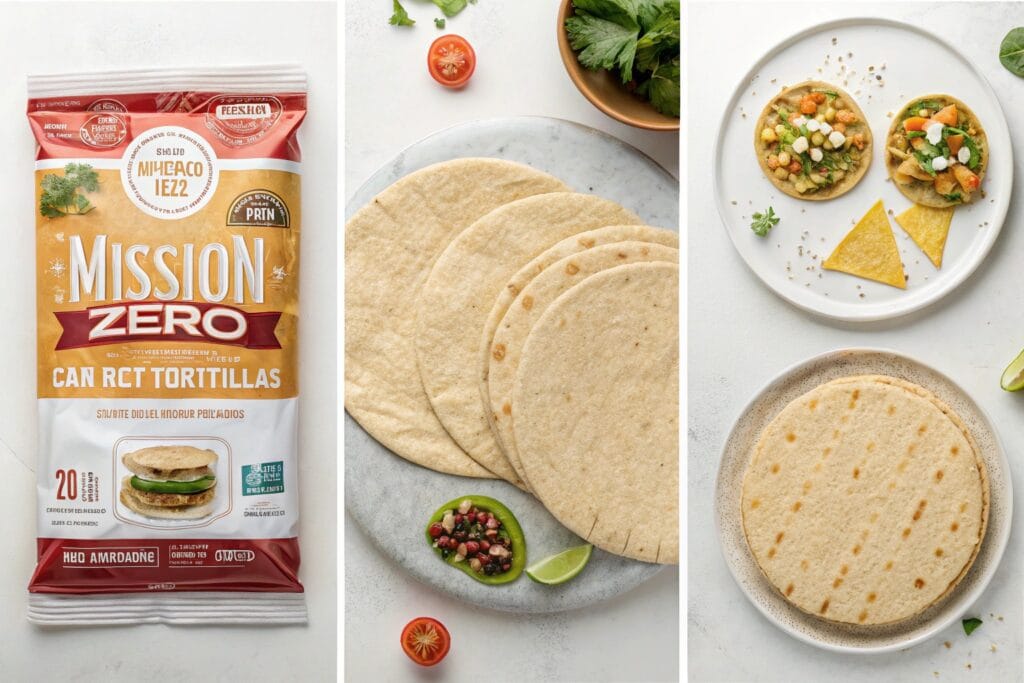
Nutritional Breakdown (per tortilla):
- Total Carbs: 15g
- Dietary Fiber: 15g
- Net Carbs: 0g
- Fat: 3g (including soybean oil)
- Protein: 5g
Taste & Texture: Mission tortillas have a somewhat authentic texture – slightly chewy with good flexibility. They don’t crack when folded, which is a plus. The flavor is relatively neutral, though some detect a slight artificial aftertaste.
Keto Suitability Verdict:
- Pros: Zero net carbs, widely available, holds up well for wraps and quesadillas
- Cons: Contains inflammatory soybean oil, highly processed ingredients, wheat-based (not gluten-free)
Guerrero Zero Net Carb Tortillas Review
Key Ingredients: Water, resistant wheat starch, wheat gluten, soybean oil, wheat protein isolate, contains less than 2% of: glycerin, salt, baking powder, wheat fiber, cellulose gum, guar gum, xanthan gum, fumaric acid, calcium propionate and sorbic acid
Nutritional Breakdown (per tortilla):
- Total Carbs: 12g
- Dietary Fiber: 12g
- Net Carbs: 0g
- Fat: 4g
- Protein: 4g
Taste & Texture: Guerrero tortillas have a slightly more “authentic” corn tortilla taste despite being flour-based. They’re relatively thin with good pliability and a neutral flavor profile.
Keto Suitability Verdict:
- Pros: Zero net carbs, good flavor profile
- Cons: Contains soybean oil, multiple gums and preservatives, wheat-based
Check current price on Walmart
La Banderita Zero Net Carb Tortillas Review
Key Ingredients: Water, oat fiber, modified wheat starch, wheat protein isolate, soybean oil, wheat bran, salt, wheat vital gluten, contains less than 2% of: calcium sulfate, sodium bicarbonate, aluminum free sodium phosphate, potassium sorbate, mono and diglycerides, guar gum, xanthan gum, enzyme, fumaric acid
Nutritional Breakdown (per tortilla):
- Total Carbs: 15g
- Dietary Fiber: 15g
- Net Carbs: 0g
- Fat: 2.5g
- Protein: 5g
Taste & Texture: These tortillas have a slightly grainy texture but good flexibility. The flavor is neutral, making them versatile for various fillings.
Keto Suitability Verdict:
- Pros: Zero net carbs, slightly better ingredient profile with oat fiber as first non-water ingredient
- Cons: Still contains soybean oil and numerous additives, not gluten-free
Other Notable Brands
Mama Lupe’s Low Carb Tortillas
- Not strictly zero carb (3g net carbs per tortilla)
- Contains less preservatives than some mainstream brands
- Good texture with a more homemade feel
La Tortilla Factory Low Carb Tortillas
- 3g net carbs per tortilla
- Uses non-GMO ingredients
- Better flavor profile but higher carb count than competitors
Comparison Chart: Zero Carb Tortillas At-a-Glance
| Brand | Net Carbs | Main Fiber Source | Notable “Clean” Ingredients | Questionable Ingredients |
|---|---|---|---|---|
| Mission Zero Net Carb | 0g | Oat fiber, wheat fiber | None | Soybean oil, multiple preservatives, modified food starch |
| Guerrero Zero Net Carb | 0g | Resistant wheat starch | None | Soybean oil, multiple gums, preservatives |
| La Banderita Zero Net Carb | 0g | Oat fiber | None | Soybean oil, mono and diglycerides, multiple gums |
| Mama Lupe’s | 3g | Modified wheat starch | None | Hydrogenated soybean oil (worse than regular) |
| La Tortilla Factory | 3g | Oat fiber | Non-GMO ingredients | Soybean and/or canola oil |
Are Zero Carb Tortillas Truly Healthy or Keto-Friendly? The Verdict
After examining the ingredients and nutritional profiles of popular zero carb tortillas, here’s the honest assessment:
These products are convenient low-carb alternatives that can help satisfy tortilla cravings without adding significant digestible carbohydrates to your diet. However, they come with notable drawbacks:
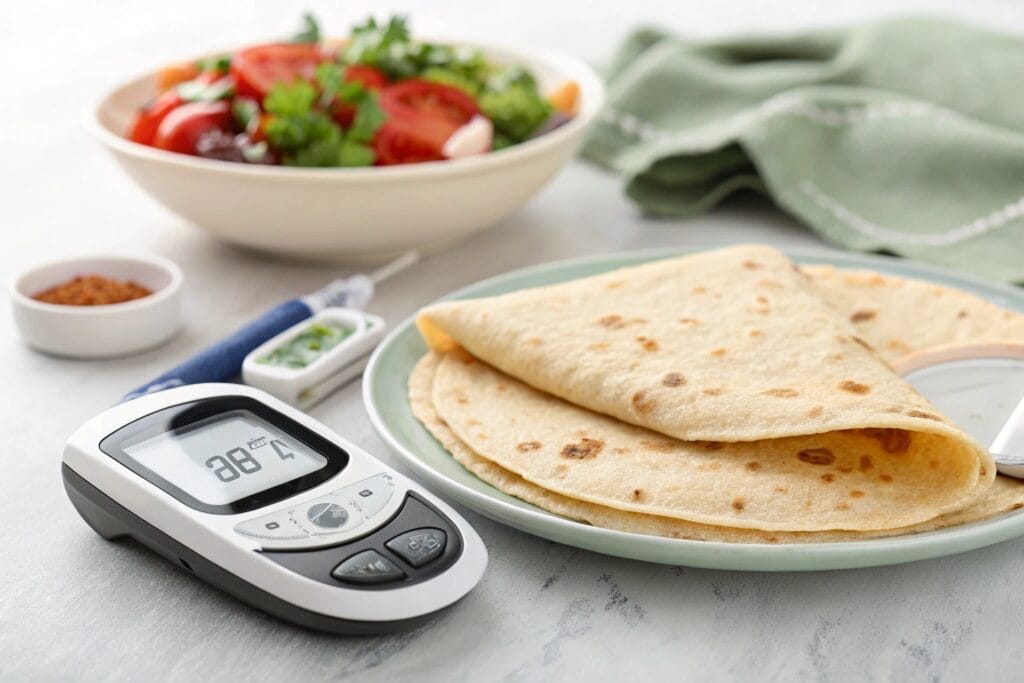
- They’re highly processed with lengthy ingredient lists
- Most contain inflammatory seed oils like soybean oil
- They rely on multiple additives to achieve their texture and shelf life
- They’re made from wheat derivatives (problematic for those with gluten sensitivity)
For those following a “dirty keto” approach focused solely on macronutrients, these tortillas might be acceptable occasional options. However, if you’re pursuing clean keto, emphasizing whole food nutrition, or have sensitivities to additives or wheat, these products are less than ideal.
It’s worth emphasizing again: these tortillas are not suitable for a strict carnivore diet under any circumstances due to their plant-derived ingredients.
The bottom line? Read labels carefully and consider your personal health goals. If hitting your macros while enjoying a familiar food format is your priority, zero carb tortillas might earn a spot in your pantry. If ingredient quality and minimal processing are non-negotiable, you’ll want to explore alternatives.
Looking for Cleaner Options?
If you’re not satisfied with the ingredient compromises of commercial zero carb tortillas, consider making your own! Homemade low-carb tortillas using simple ingredients like almond flour, coconut flour, psyllium husk, and eggs can provide a more whole-food alternative.
Check out our Clean Keto Tortilla Recipe here – This simple 5-ingredient recipe creates flexible, delicious tortillas without the questionable additives.
Also explore our Ultimate Guide to Keto-Friendly Wraps for more alternatives including cheese wraps, egg wraps, and coconut wraps.
Frequently Asked Questions About Zero Carb Tortillas
Are zero carb tortillas actually keto-friendly?
From a strict macronutrient perspective, yes – they contain 0g net carbs. However, from an ingredient quality standpoint, they contain highly processed components and inflammatory oils that many clean keto followers avoid. They work for “lazy keto” or “dirty keto” approaches focused purely on carb counts.
Do zero carb tortillas spike insulin?
Individual responses vary. While the fiber content theoretically shouldn’t impact blood sugar or insulin levels significantly, some people report blood glucose increases after consuming these products. This could be due to individual insulin sensitivity, the wheat gluten content, or other factors. The best approach is to test your own response with a glucose monitor if you’re concerned.
Are Mission zero carb tortillas actually zero carbs?
They contain 0g net carbs (15g total carbs minus 15g fiber), but they still contain carbohydrates that are theoretically non-digestible. If you’re counting total carbs rather than net carbs, these would not qualify as “zero carb.”
Can I eat zero carb tortillas on a carnivore diet?
No. Zero carb tortillas contain numerous plant-derived ingredients including wheat, oat fiber, vegetable oils, and various additives. They are not compatible with a carnivore approach.
What are the healthiest low-carb tortillas?
If you’re prioritizing clean ingredients, homemade tortillas using almond flour, coconut flour, or egg bases are generally healthier options. Among commercial brands, La Tortilla Factory uses fewer additives and non-GMO ingredients, though they contain 3g net carbs rather than zero.
How do zero carb tortillas taste compared to regular tortillas?
The texture and flavor are surprisingly similar to conventional flour tortillas, though some users report a slight aftertaste or grainier texture. They generally perform well for wraps, quesadillas, and other applications where regular tortillas would be used.
Conclusion
Zero carb tortillas offer the convenience of maintaining a familiar food format while adhering to ketogenic macronutrient ratios. However, they achieve this through highly processed ingredients and additives that may not align with the health-focused principles that drew many to keto eating in the first place.
As with most food decisions, it comes down to your personal priorities and tolerance. If you occasionally enjoy a zero carb tortilla wrapped around some carnitas or as a quesadilla base, your ketosis likely won’t suffer. Just be aware of what you’re actually consuming and make an informed choice about whether these products deserve regular rotation in your low-carb lifestyle.
For more clean keto alternatives to favorite foods, check out our guides to keto bread alternatives and keto pasta substitutes.
Disclaimer: This article is for informational purposes only and is not intended as medical advice. Individual responses to foods vary, and what works for one person may not work for another. Always consult with a healthcare professional regarding any questions you have about your diet or health conditions.
[^1]: Jenkins DJ, et al. (2000). “Viscous and nonviscous fibres, nonabsorbable and low glycaemic index carbohydrates, blood lipids and coronary heart disease.” Current Opinion in Lipidology, 11(1), 49-56.
[^2]: Slavin J. (2013). “Fiber and prebiotics: mechanisms and health benefits.” Nutrients, 5(4), 1417-1435.
[^3]: Ramsden CE, et al. (2016). “Re-evaluation of the traditional diet-heart hypothesis: analysis of recovered data from Minnesota Coronary Experiment (1968-73).” BMJ, 353, i1246.
[^4]: Suez J, et al. (2014). “Artificial sweeteners induce glucose intolerance by altering the gut microbiota.” Nature, 514(7521), 181-186.
Enjoy, Review – We Value Your Opinion!
There are no reviews yet. Be the first one to write one.

